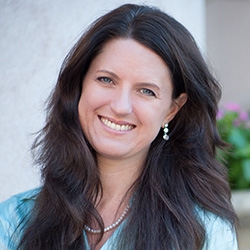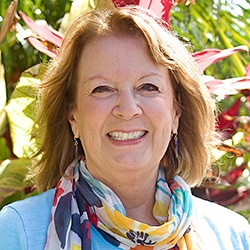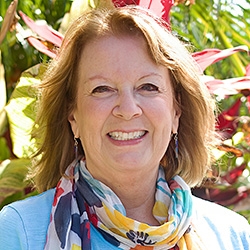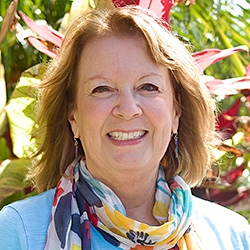
Search Results: limits
-
Whenever we make mistakes, we're often beating ourself up in a way that breeds guilt, fear and/or shame. Nonviolent Communication offers a model based in self-empathy that lets you reflect, process and move forward without the guilt, fear and shame.
-
Have you ever said 'I'm Sorry' to someone, only for it to leave you feeling disappointed and lacking connection? In some cultures, saying 'I'm sorry' has become too easy and is used for all sorts of situations. Whether it's just to excuse yourself as you pass in front of someone taking a photo, or if you've truly hurt a close friend. So when we really need to communicate regret, how can we do so in a way that acknowledges the situation and the connection?
-
Within the pandemic, limitations of our market economies are more visible. Extreme need is exposed when the economy is collapsing and so many people are without jobs. We can now see how it’s possible to direct resources where they are most needed, solely out of care and interconnection. This is a call to explore a more viable way of living, that centers relationship over transaction.
-
In learning how to re-invent the economic system so that it distributes resources in a way that includes as many people's needs as possible, we would need to be in a process of mutual influence with one another. However, addressing resource distribution can be complex when people in different social locations have 1.)a different sense of what's considered "enough" 2.) different capacities to find creative strategies that work within the given limitations, and 3.)different levels of self-doubt, shame and capacity to put their concerns and needs on the table. Can we collectively create conditions that support people to stretch productively so that included in the outcome are the needs, perspectives, ideas, and concerns of people who are less powerful? What needs to be in place to support the way towards a better future?
-
The purpose of boundaries is to prevent harm to yourself and others. You decide what you are available for and what you are not. Boundaries are a clear expression of limits that keep your heart open no matter what.
-
The human species is trained and habituated towards separation. This model encourages humans to either give up on their needs or fight for their needs. In this short video, Miki shares how increasing capacity shifts habits of separation and supports holding of all needs. Through intensive lifelong practices we learn to increase our capacity to receive and to increase our capacity to be generous supports our overall capacity to hold all needs.
-
The more we can support an interdependent flow of resources and energy in society and the economy, the greater we can increase both natural abundance and the chances of averting extinction. Accumulation is a strategy born of mistrust. It’s an attempt to control the flow of life to guarantee that we will have enough for the future. Accumulation and exchange has blocked this interdependent flow. We can transform this blockage by uncoupling giving from receiving, and shedding excess as much as we can, so that energy and resources can travel further to those in need.
-
Our ability to reduce our reliance on money, or even exit the logic of money and exchange in our own thinking, is limited by the degree of trust we have that our needs will be met without it. The more we can enter into sufficient trust, the more we can enter into a web of sharing resources -- borne from a place of love. Read on for more.
-
When we ask something of a person and threaten negative repercussions if she doesn’t comply, we're making a demand. Demands limit the possible responses and reduce joyful participation. Instead, look to find mutually satisfying resolutions. And look for ways to change your demand into a request. Read on for more.
-
- Support family, community, and organizations to realign with life
- Get the building blocks of integrative decisions that work for all
- Learn to lean on all available capacities to dance together for liberation
- Reweave the threads of togetherness into something stronger than individual existence
-
Ask the Trainer: Can all needs be met when illness limits the capacity of one person to meet the needs of her partner?
-
Unless we change our collective ways on the planet, we will one day exceed the earth’s carrying capacity. We can only address the planet's very real limits of physical resources at the level of social organization. To operate empathically is to adjust our collective social order and patterns so that resources are more widely available and everyone's needs are met no matter what their output, income, power, circumstances, etc. Can we envision a future where the system is infused with this level of empathy, before it's too late?
-
For effective dialogue clarify your needs, boundaries, and requests beforehand. Setting boundaries is telling someone what you're going to do in order to meet or protect needs for yourself or others. Whereas with requests, even if you have preferences, you still hold open curiosity about strategies to collaborate with others in meeting needs. Read on for more.
-
Who are you not use to caring about? Is it those you classify as "other"? Those you disagree with? The lower class? People in power? Those who inflict harm? Yourself? To include everyone's needs fully, not instead of your needs, can transform the either/or paradigm. It can also help us to go beyond so-called "codependency". And it can support us all to live more sustainably on this planet.
-
When feeling unworthy, powerless, or afraid, we can hear others' comments as criticism, rejection, demands, limits, or attacks. Practice self-compassion, release attachments, and ask “How can I stretch the boundaries of who I believe myself to be, in service of love?”. Try replacing love with a word that inspires you (e.g. freedom, thriving, etc). Note answers that arise later. Or explore the question with a trusted person or in a journal. Read on for examples.
-
So many of us have been taught to solve conflicts by what is “fair.” However, Miki Kashtan states that fairness is a separating concept. In this video, she describes how when we do not have the conditions to care for all needs involved, when we live within separation, fairness is second best. 
-
Trainer Tip: Requests include a specific action to help us get our needs met. If we have a complaint or in conflict, and we don’t make specific requests, people are left guessing and/or wondering about what will meet our needs. Our chances for getting our needs met can then become limited. Instead, try ending with a request to let the other person know exactly what you would like to happen.
-
Trainer tip: Demands are more likely to limit the possibilities and create distance between people. The trick to asking something as a request is valuing everyone’s needs equally. When you value everyone’s needs equally, then you are more willing to come to solutions that satisfy everyone. It thus opens possibilities and helps build connection.
-
Marriage can be seen as a limit on freedom. Ideas of compromise collude with this view. Instead, notice when your "yes" to your partner is laden with obligation, duty, guilt, fear, or an attempt to win love or approval, and how it's not a truly free "yes". True freedom is different from compulsion, and doesn't conflict with other needs. When have you experienced true freedom? What conditions support your access to freedom?
-
- Reclaim the lost voices of your ancestors
- Understand the impact of collective trauma on your family line
- Open yourself up to have more warmth for yourself and your children
- Restore the flow of love and energy from past generations


















